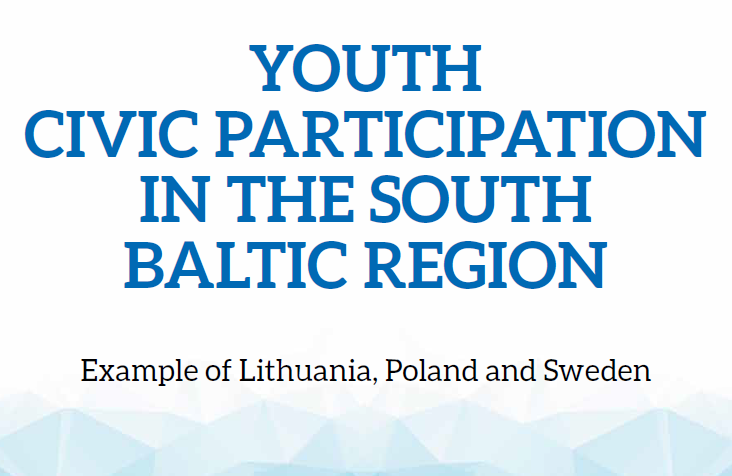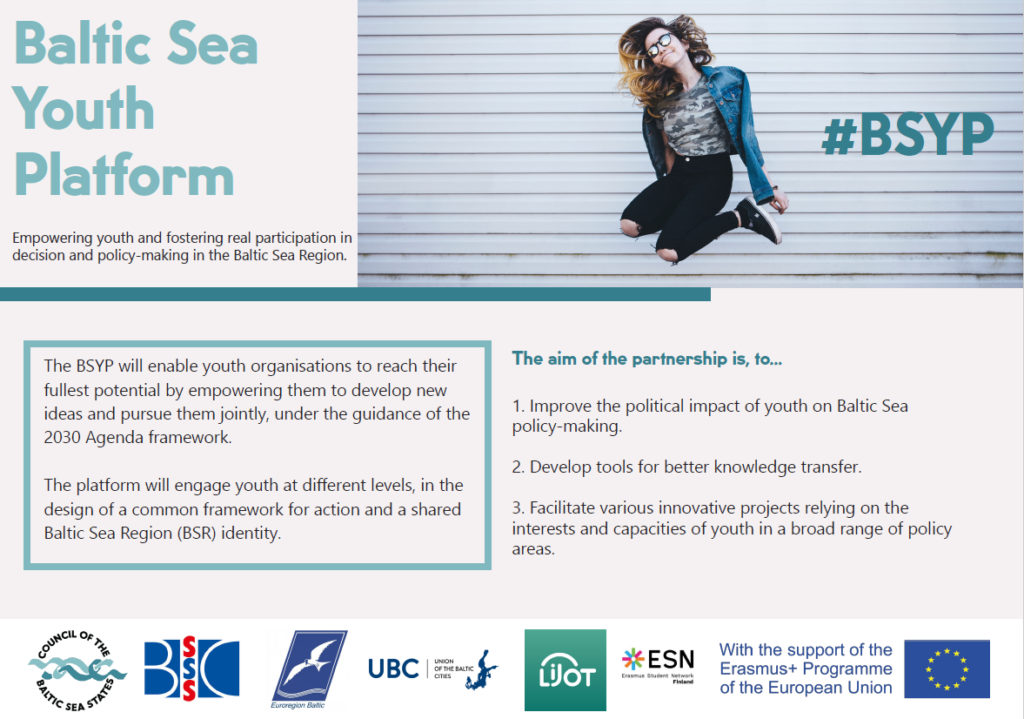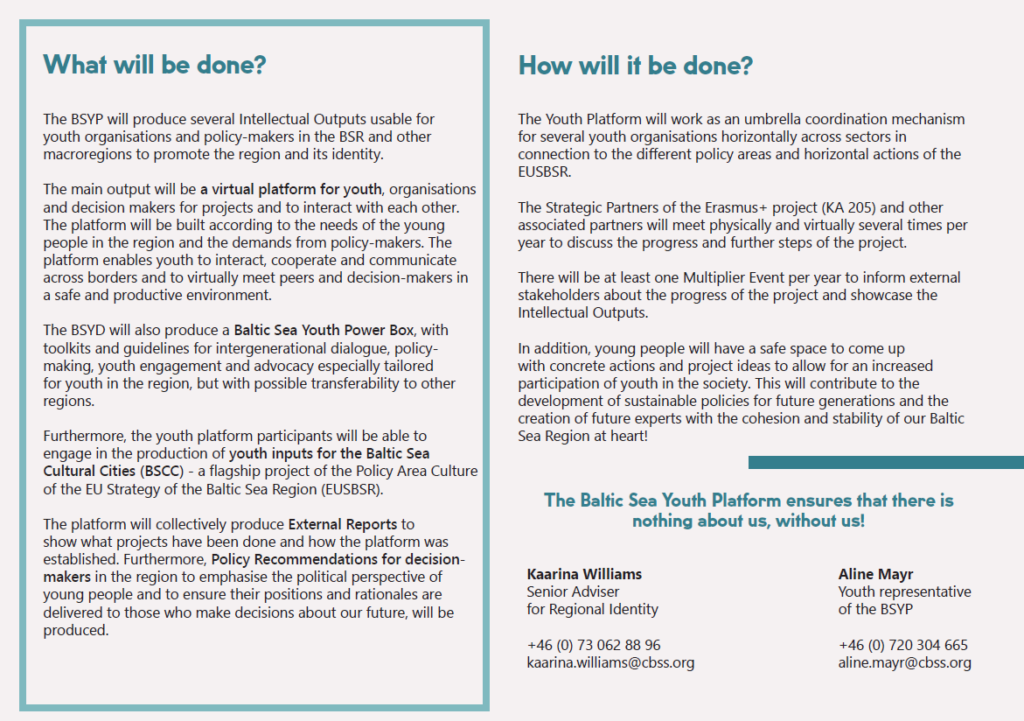We would like to present to you one of the outcomes of YCGN project – an ebook on “Youth civic engagement in the South Baltic Region.
The main aim of the YCGN project led by the Association of Polish Communes Euroregion Baltic was to increase cross-border cooperation resulting in building capacity of local actors working with youth and to demonstrate the benefits of soft cross-border cooperation for solving common youth issues. Project objectives were: enhancing cross-border cooperation of young people in partner countries; improving capacity and competencies of local governments and their representatives to engage in civil dialogue with youth, and disseminating project results for the development of future plans for increased youth participation in local and cross-border issues in the SB region.

Download the full publication here:
The issues of civic participation, including youth civic participation, have been present in both the scientific and political discourse for many years. The changes taking place in modern societies and civic activity encourage the search for effective solutions, especially systemic ones, to involve as many citizens as possible in decision-making processes.
The importance of youth issues has been emphasised in a number of European Union documents: the Maastricht Treaty, the Treaty of Lisbon, European Commission White Paper, the European Charter on the Participation of Young People in Local and Regional Life, the European Pact for Youth and the EU Strategy for Youth. Young people are also the subject of many national documents: laws, ordinances and strategies of Sweden, Lithuania and Poland. However, neither the European Union policy nor the policies of Lithuania, Poland and Sweden concerning youth and its civic participation can ensure the desired level of youth engagement in decision-making concerning young people as citizens.
International projects, particularly those co-financed by the European Union, have an important role to play in promoting young people’s civic participation. They allow the exchange of knowledge and experience, the creation of new solutions to problems and their implementation at the grassroots level. This was the role of the South Baltic Youth Core Groups Network (SB YCGN) project implemented in the framework of the 2014–2020 Interreg V-A South Baltic Programme by a Polish-Lithuanian-Swedish partnership. One of its outputs is this monograph.
The aim of this study was to show youth civic participation as a social inclusion element in the Southern Baltic region in need of reinforcement, based on the examples of selected municipalities from Lithuania, Poland and Sweden. The authors focused on the diagnosis of key elements of youth civic engagement at the local and cross-border level, taking into account the context of national youth policies and the European Union policy.
The problem was highlighted from the perspective of two social groups: adult decision-makers represented by employees of local institutions and young people aged 14–24 from the Lithuanian municipality of Telšiai, Polish municipalities of Dzierzgoń, Elbląg, Gdynia, Iława and Nowe Miasto Lubawskie, and the Swedish municipality of Hässleholm. For this reason, the core part of the monograph consists of the results of quantitative studies and qualitative studies conducted on the two populations. The objective of the quantitative studies was to identify and assess the needs of institutions and young people relating to the stimulation of youth civic participation at local and cross-border level, youth engagement in decision-making processes, key barriers to civic participation of young people and effective forms and methods of involving youth in active citizenship.
The quantitative studies of institutions and youth were conducted by a Polish-Lithuanian group whose members were Prof. Krystyna Gomółka, Dr.
Izabela Borucińska (Gdańsk University of Technology), Prof. Ligita Šimanskienė and Dr. Jurgita Paužuolienė (Klaipeda University). The qualitative studies were carried out with the aim of supplementing and broadening the knowledge of youth civic participation issues at the local and cross-border level, with particular emphasis on political involvement. The authors of these studies were the Lithuanian team composed of Prof. Rimantas Stašys (Klaipeda University) and Dr Remigijus Civinskas (Vytautas Magnus University).
To read more about the YCGN project –
https://southbaltic.eu/-/sb-ycgn


